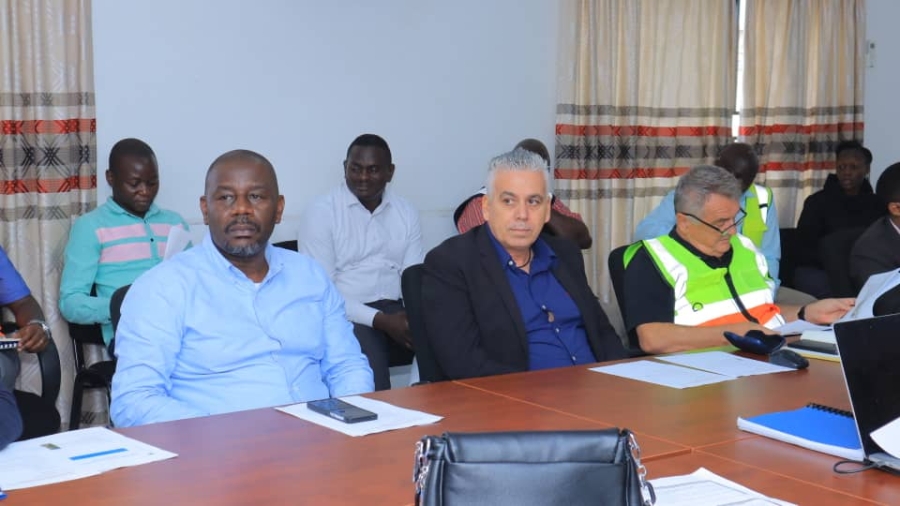The construction of Kabalega International Airport, a key infrastructure project in Uganda’s oil and gas sector, is now 96% complete, with the official commissioning set for September 2025. The airport, located in Hoima District, is expected to play a pivotal role in facilitating the transportation of critical equipment to meet Uganda's 2025 oil production target.
The contract for the constructcion of the airport was awarded to a joint venture between Israeli-British firms Shikun and Binui International-SBI/Colas Limited, had initially planned to hand over the airport to the government last month. However, Buchbut Sharly, the Managing Director for SBI International, explained that additional time was needed to finalize key elements of the project, including the construction of the control tower, installation of electricity, CCTV cameras, fibre optic cables, and other essential operations.
A significant design change also contributed to delays: the airport was originally designed with a mobile control tower, but plans were later altered to include a fixed control tower, which required additional time and resources. This shift in design, according to SBI, impacted the progress of the overall construction, leading to the delay.
The government of Uganda has already invested 1.08 trillion shillings of the 1.188 trillion allocated for the project. The contractor is currently requesting an additional 76 billion shillings to complete the remaining works. Despite challenges, including increased material costs and disruptions caused by the COVID-19 pandemic, Fred Byamukama, the Minister of State for Transport, reassured stakeholders that the airport will be completed on schedule, with the major facilities largely in place.
Once finished, Kabalega International Airport will be a cornerstone of Uganda’s fast-developing oil and gas industry. The airport will include:
- A 3.5 km runway (99% complete)
- Control tower (under construction)
- Cargo terminal (complete)
- Passenger terminal (limited capacity, near completion)
- Fire station, apron, parallel runways, taxiways, air rescue fire fighting house, power substation, communications and navigation systems, and more.
With a runway that can accommodate large cargo planes and facilities capable of supporting the transportation needs of the oil sector, the airport will serve as a vital logistical hub for both the oil and gas industry and the agriculture and tourism sectors in the Albertine region and beyond.
The completion of the airport will bring substantial benefits to the surrounding community, particularly in Bunyoro. Byamukama urged the local population to prepare for the economic opportunities the airport will create. Furthermore, 90% of the workers on the project are Ugandan, and the government plans to continue training and equipping local workers for future airport construction projects.
The project is expected to contribute to the development of local expertise in airport operations, as some staff from Entebbe Airport will be transferred to Kabalega to ensure smooth operations once the airport opens.
Earlier this year, construction was briefly halted due to a dispute over funding. The contractor had requested an additional 126 billion shillings to complete the work, citing price hikes for materials and labour. The government also raised concerns about possible cost inflation and potential irregularities in the project’s financial management. However, after negotiations and investigations, work resumed in April 2023, with both parties agreeing on a path forward.
As the final 5% of construction work is completed, the airport is expected to be fully operational by September 2025. The airport’s completion is crucial for Uganda’s oil production ambitions and will provide a significant boost to the local economy. Test flights have already successfully passed international standards, and the airport is on track to meet its target date for commissioning.
The first phase of the project will conclude with the operational opening of the runway and cargo terminal, followed by the passenger terminal procurement process set to begin six months later.
This monumental project marks a critical step in Uganda’s infrastructure development and its positioning as a key player in East Africa’s oil and gas industry.

